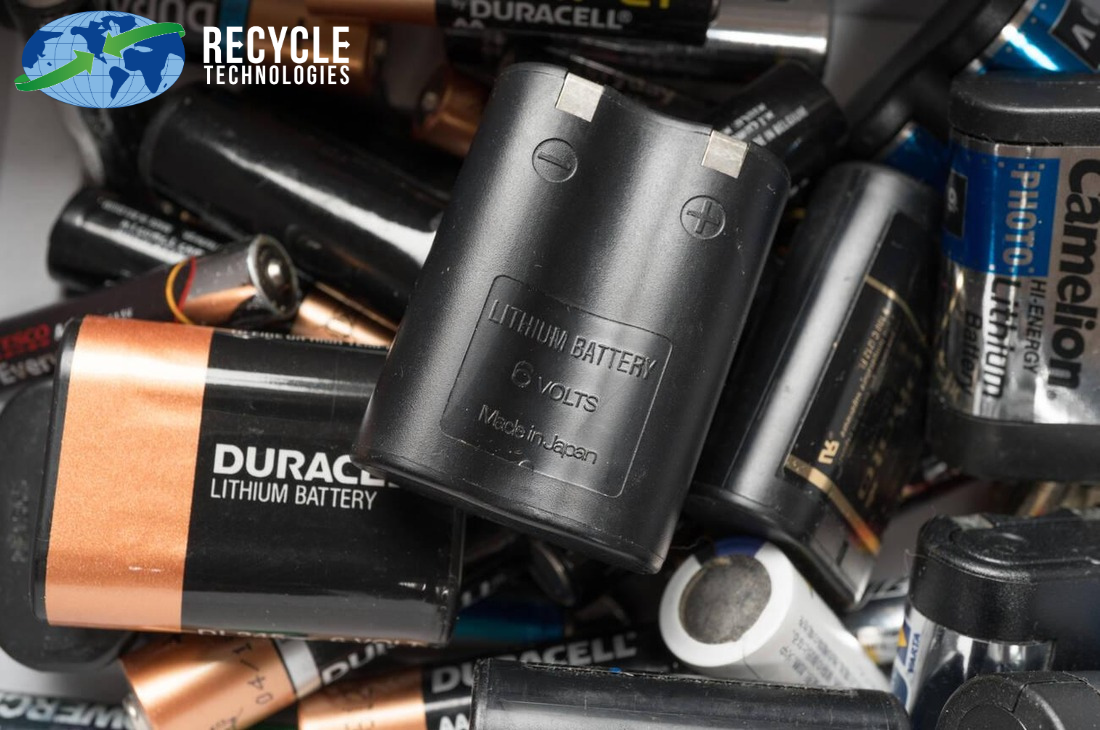The use of lithium-ion batteries is increasing with the advent of battery-powered cars like Tesla. With the increasing volumes of old batteries, it has become incumbent to practice responsible lithium-ion battery recycling.
These batteries are a rich source of lithium and cobalt, which can be extracted by recycling used batteries. This can solve the issue of the price hike these metals are currently undergoing due to raised demands.
In this blog we will explore the importance of lithium-ion battery recycling, how these batteries are recycled, and Recycle Technologies’ novel approach to tackle the issue of lithium-ion battery recycling.
What are Lithium-ion Batteries
Before exploring why it is important to recycle used batteries let us first understand what these batteries are composed of. Typically, a lithium-ion battery consists of four parts- the anode, cathode, separator, and an electrolyte mixture.
Following is a detailed explanation of each component.
Anode: This is the electrode responsible for storing lithium ions. It has a negative charge enabling the current to flow through the external circuit.
Cathode: It is the source of lithium ions and holds a positive charge. This electrode determines the voltage and the capacity of the battery.
Separator: As the name suggests, the separator is a barrier that keeps the anode and cathode separate.
Electrolyte: it is a mixture of solvents, salts, and additives and it serves to enable the flow of ions between the anode and the cathode.
Significance of Recycling Lithium-ion Batteries
Lithium-ion batteries have become widespread in our day-to-day lives. For this reason, there are now a lot more discarded batteries than there used to be in the past. The importance of lithium-ion battery recycling can be understood by evaluating the following points.
- Recycling lithium-ion batteries helps to recover useful and expensive substances like nickel and cobalt. These metals are housed in the cathode of lithium-ion batteries and have become costly due to the increased demand for manufacturing these batteries.
- Responsible recycling of lithium-ion batteries helps to keep these batteries out of landfills and minimize their harmful effects on the environment.
- The extraction of metals like cobalt, nickel, and manganese from used batteries serves to conserve natural resources, reduce environmentally intensive mining activities, and lessen the dependency on virgin raw materials for manufacturing new batteries.
Do’s and Don'ts of Responsible Lithium-ion Battery Recycling
Proper lithium-ion battery recycling is a detailed and sensitive process and involves the use of specialized equipment and expertise. Therefore, it is best to entrust it to certified e-waste recycling companies that offer battery recycling services. Lithium-ion batteries are composed of a variety of sensitive materials which can prove to be toxic if not handled properly. It is important to manage them securely to ensure safety throughout the recycling process.
To prevent any accidents, the following are some crucial dos and don'ts of lithium-ion battery recycling.
Do’s
- Safely store damaged batteries in anti-static bags. This prevents the batteries from catching any charge.
- If the battery is damaged, safely remove it from the device. If the damage is to an extent that it is not safe to remove the battery from the device that it powers, you can leave the battery inside and recycle it with the device.
- Always make sure to store old batteries in a dry and cool area, to mitigate the risk of fire accidents.
- Make sure you partner with a certified battery recycling service provider to properly recycle and dispose of the toxic materials in old lithium-ion batteries.
- It is wise to always tape off the terminals of a battery.
Don'ts
- Avoid throwing lithium-ion batteries in your regular trash bins, especially avoid doing so if they are damaged.
- Do not tamper with discarded batteries, for example, do not puncture or crush them. This can cause leaking of the electrolyte from the battery and can be hazardous.
- Be cautious to not keep damaged batteries near flammable substances.
- Avoid storing a large number of discarded lithium-ion batteries in your home or office.
Final Thoughts
In conclusion, the demand for lithium-ion batteries will continue to increase in the near future due to the growth in battery-powered cars. This increased demand comes with the challenge of efficient lithium-ion battery recycling to conserve resources like cobalt and nickel, promote a healthier environment, and establish a circular economy through the reuse of raw materials.
Recycle Technologies’ Lithium-Ion Battery Recycling Services
Recycle Technologies is one of the pioneers of effective lithium-ion battery recycling services in Minnesota and Wisconsin. We strive to develop recycling procedures that maximize material recovery and minimize harmful environmental effects.
Our workflows ensure sustainability and safety not only for the environment but also for our workforce. You can learn more about our battery recycling operations and services on our website.












